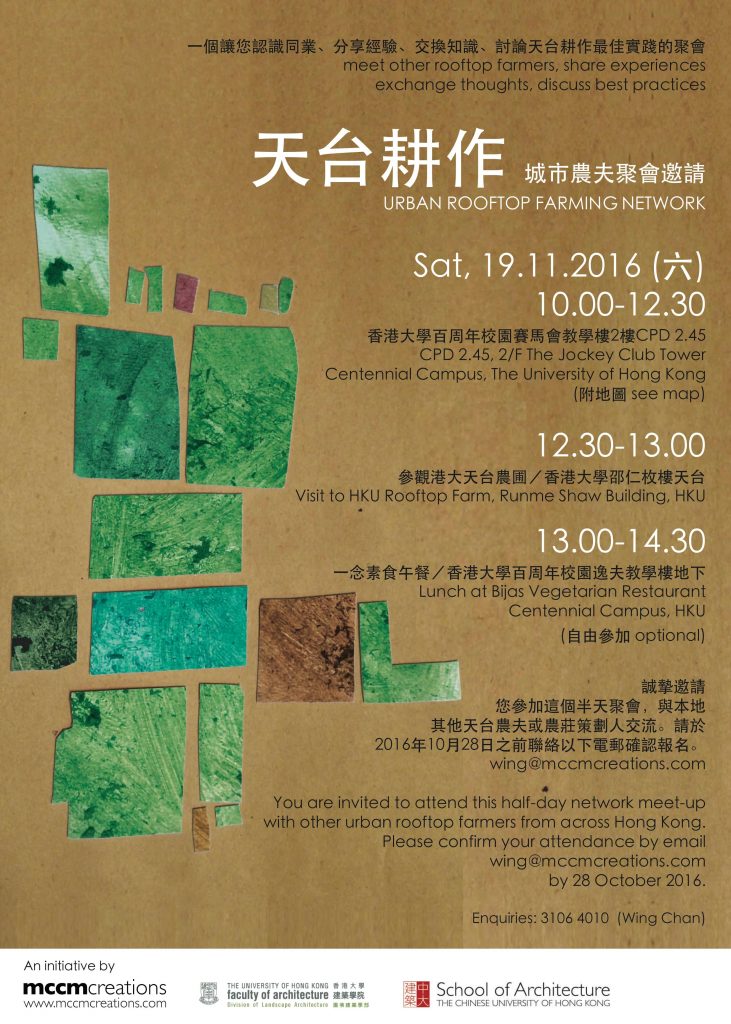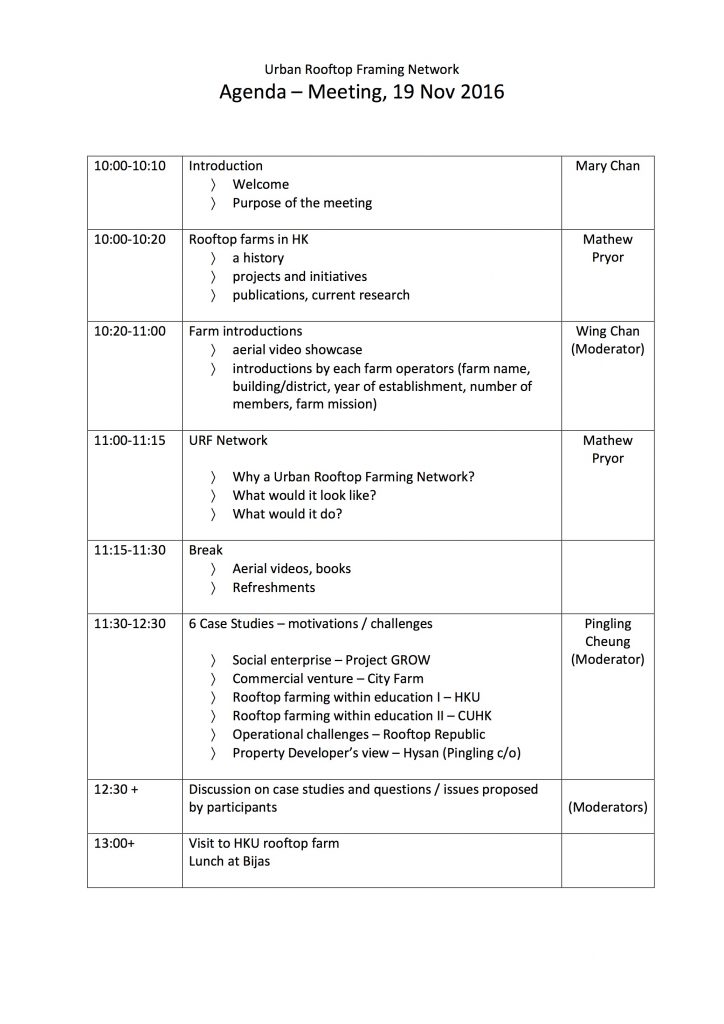| The meeting was held to offer a platform for urban rooftop farmers to share experience and practices, hence aimed to strengthen the community connection and tackle common challenges. |
1. Background
3. Feedback on Questions Discussed at the Meeting
|
1. Background Why a Urban Rooftop Farming Network? The rooftop farms in HK are mostly spontaneous and unconnected. Many people have had the same bright idea and have gone out and built themselves a farm on their roof. There is very strong interest within urban communities in rooftop farming, as a social, recreational and healthy lifestyle choice. All the farms have common goals and face similar challenges. We think that some form of broad network amongst rooftop farms, would allow us to share experience and practices, to promote rooftop farming within the community and to tackle some of the challenges together. What would a Network look like? Formal / Informal Structure – Supportive What would a Network do? Information Activities Collaboration |
2. Meeting Agenda
3. Feedback on Questions Discussed at the Meeting
|
Q1. How do you think a network of rooftop farms could be useful to you and your members? The majority agreed that a network would be useful in sharing experience. Nearly 50% of the group looked for mutual support such as knowledge exchange, materials and resources sharing. A third of the group wanted to meet others with the same goal and beliefs, as this could drive momentum needed to gain government’s support. However, the network may need to widen its spectrum to an urban level. Q2. What form could the network take? The majority wished to start the networking informally such as website and simple sharing sessions, while short lectures could be an option. Then it might progressively develop into a formal group. Suggest to run the network at different farm sites. Many would welcome a formal association, but some have concerns about how the network would operate, its goal and membership format etc. Q3. What sort of information about rooftop farming in Hong Kong would you be interested in, i.e. what can we put in the proposed URFN website? There is a wide range of information the participants are looking for. Some are looking forward to farm lists and their details, practical farming skills and tips, as well as network meeting reports. Others suggest to put lists of materials suppliers, farming regulations and research findings (eg. availability of rooftop spaces in HK) onto the website. Some recommend setting up a forum for instant chat, case study reports and regular network events. One party is interested in Chinese medicinal plants and organic farming. Q4. What technical information would you like more of? Participants mostly expressed their interest in specialist farming skills and building related issues, including safety information, rules and regulations. One mentioned new technologies and techniques like aquaponics. Any information they are not familiar with. Q5. What major challenges are you facing? Respondents mentioned a range of challenges they were encountering. Funding or rental fee is a major issue to most of the farms, and manpower shortage is a close second. Some are not able to source affordable materials and suppliers. Pests are also a big problem to some farms. Q6. What priority issues do you think we should try and tackle together, through collective action/ advocacy? Government is key in promoting rooftop farming. It should set an example on its own (Government) buildings. Farms need to gain recognition from the Government as a green building measure. Half of the participants suggested that we urban farming should be promoted to the public. Two are looking for funds from the government. Q7. What could we collaborate on? The majority were eager to share information and tips on various aspects. They have also suggested more farm visits and social activities so that they can learn from others’ experience. Over half of the group has a need to share bulky materials as storage could be a problem. Further action on education, promotion and agenda for collective actions, are also needed. |


